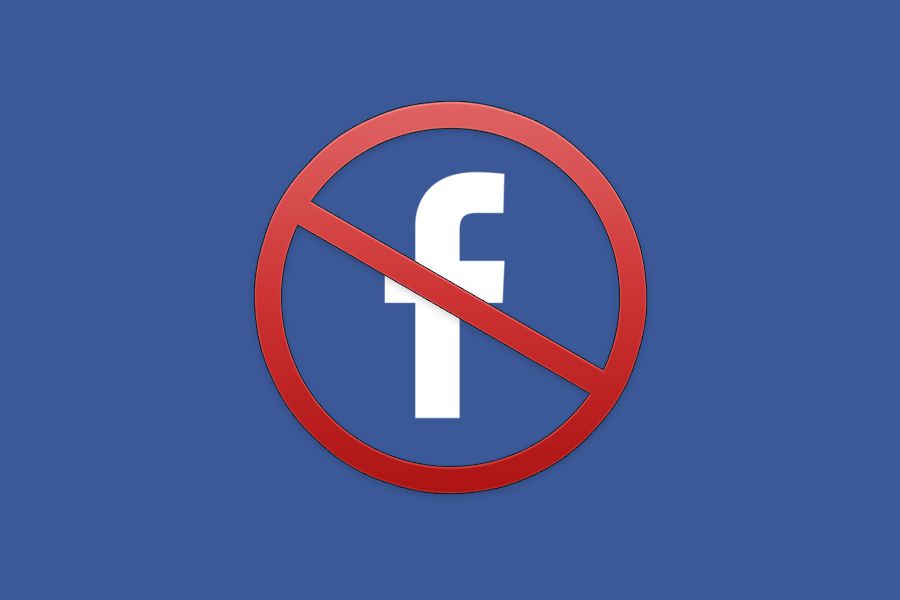Is Facebook Banned in China and Why?

Social media has become an integral part of daily life for billions of people around the world. Platforms like Facebook connect individuals, businesses, and communities, allowing for the exchange of ideas, information, and culture. However, despite its global reach, Facebook is notably absent in one of the world’s most populous countries: China. This article explores the reasons behind Facebook’s ban in China, the broader implications of internet censorship in the country, and how Chinese netizens navigate these restrictions.
The Ban on
Social media has become an integral part of daily life for billions of people around the world. Platforms like Facebook connect individuals, businesses, and communities, allowing for the exchange of ideas, information, and culture. However, despite its global reach, Facebook is notably absent in one of the world’s most populous countries: China. This article explores the reasons behind Facebook’s ban in China, the broader implications of internet censorship in the country, and how Chinese netizens navigate these restrictions.
The Ban on Facebook
Facebook has been officially banned in China since July 2009. The Chinese government blocked the social media platform following the Ürümqi riots, where ethnic tensions between the Han Chinese and Uyghur populations escalated into violence. The government claimed that activists used Facebook and other social media to organize and spread information about the protests, which contributed to the unrest.
The Great Firewall of China, a sophisticated system of internet censorship and surveillance, is employed to block access to Facebook. This extensive digital barrier prevents Chinese users from accessing the platform, along with other popular Western social media services like Twitter, Instagram, and YouTube.
Reasons Behind the Ban
- Political Control and Stability: The primary reason for Facebook’s ban is political. The Chinese government maintains tight control over information to ensure political stability and suppress dissent. Social media platforms like Facebook can facilitate the rapid spread of information, which could be used to organize protests or criticize the government. By banning Facebook, the government reduces the risk of political unrest and maintains control over the narrative.
- Censorship and Surveillance: China’s government enforces strict censorship laws to control the content accessible to its citizens. Facebook, based in the United States, does not comply with Chinese censorship regulations, such as filtering politically sensitive content or providing user data to the government. Therefore, allowing Facebook to operate in China would undermine the government’s ability to monitor and control online activity.
- Economic Protectionism: Banning Facebook also benefits Chinese technology companies by limiting foreign competition. Platforms like WeChat, Weibo, and QQ have flourished in the absence of Western social media giants. These homegrown platforms comply with government regulations, including censorship and data-sharing requirements, making them preferable for the Chinese authorities. By restricting access to foreign services, China fosters the growth of its domestic tech industry.
Impact on Chinese Netizens
Despite the ban, some Chinese citizens still find ways to access Facebook. Tech-savvy users employ Virtual Private Networks (VPNs) to bypass the Great Firewall. VPNs create encrypted connections to servers outside of China, allowing users to access blocked websites and services. However, using VPNs comes with risks, as the Chinese government continuously cracks down on VPN providers and users, making it increasingly difficult and potentially dangerous to access forbidden content.
Moreover, the absence of Facebook has led to the rise of unique Chinese social media ecosystems. WeChat, for example, has become an all-encompassing app, combining messaging, social networking, payment services, and more. This localization has created a distinct digital culture within China, where the lines between social media, e-commerce, and daily activities are increasingly blurred.

Broader Implications of Internet Censorship
China’s ban on Facebook is part of a larger strategy to control the flow of information and maintain social stability. This approach has broader implications for freedom of expression, access to information, and global internet governance.
- Freedom of Expression: The ban on Facebook and other foreign social media platforms restricts the free flow of information and limits Chinese citizens’ ability to express themselves openly. The Chinese government tightly controls online discourse, removing content deemed politically sensitive or harmful. This environment stifles dissent and suppresses diverse viewpoints.
- Access to Information: By blocking Facebook, the Chinese government restricts its citizens’ access to global perspectives and information. While Chinese social media platforms provide alternatives, the content is often subject to heavy censorship, limiting the breadth and diversity of available information. This isolation can lead to a more insular and controlled information environment.
- Global Internet Governance: China’s approach to internet censorship and control poses challenges to the concept of a free and open internet. As more countries consider implementing similar measures, the global landscape of internet governance may shift towards increased fragmentation and regulation. This trend could undermine the principles of a borderless and accessible internet.
Conclusion
Facebook’s ban in China highlights the complexities of internet censorship, political control, and economic protectionism. While the Chinese government maintains that such measures are necessary for social stability and national security, the restrictions on freedom of expression and access to information raise significant concerns. As the digital landscape continues to evolve, the tension between state control and individual freedoms will remain a critical issue in the discourse on global internet governance.
Facebook has been officially banned in China since July 2009. The Chinese government blocked the social media platform following the Ürümqi riots, where ethnic tensions between the Han Chinese and Uyghur populations escalated into violence. The government claimed that activists used Facebook and other social media to organize and spread information about the protests, which contributed to the unrest.
The Great Firewall of China, a sophisticated system of internet censorship and surveillance, is employed to block access to Facebook. This extensive digital barrier prevents Chinese users from accessing the platform, along with other popular Western social media services like Twitter, Instagram, and YouTube.
Reasons Behind the Ban
- Political Control and Stability: The primary reason for Facebook’s ban is political. The Chinese government maintains tight control over information to ensure political stability and suppress dissent. Social media platforms like Facebook can facilitate the rapid spread of information, which could be used to organize protests or criticize the government. By banning Facebook, the government reduces the risk of political unrest and maintains control over the narrative.
- Censorship and Surveillance: China’s government enforces strict censorship laws to control the content accessible to its citizens. Facebook, based in the United States, does not comply with Chinese censorship regulations, such as filtering politically sensitive content or providing user data to the government. Therefore, allowing Facebook to operate in China would undermine the government’s ability to monitor and control online activity.
- Economic Protectionism: Banning Facebook also benefits Chinese technology companies by limiting foreign competition. Platforms like WeChat, Weibo, and QQ have flourished in the absence of Western social media giants. These homegrown platforms comply with government regulations, including censorship and data-sharing requirements, making them preferable for the Chinese authorities. By restricting access to foreign services, China fosters the growth of its domestic tech industry.
Impact on Chinese Netizens
Despite the ban, some Chinese citizens still find ways to access Facebook. Tech-savvy users employ Virtual Private Networks (VPNs) to bypass the Great Firewall. VPNs create encrypted connections to servers outside of China, allowing users to access blocked websites and services. However, using VPNs comes with risks, as the Chinese government continuously cracks down on VPN providers and users, making it increasingly difficult and potentially dangerous to access forbidden content.
Moreover, the absence of Facebook has led to the rise of unique Chinese social media ecosystems. WeChat, for example, has become an all-encompassing app, combining messaging, social networking, payment services, and more. This localization has created a distinct digital culture within China, where the lines between social media, e-commerce, and daily activities are increasingly blurred.
Broader Implications of Internet Censorship
China’s ban on Facebook is part of a larger strategy to control the flow of information and maintain social stability. This approach has broader implications for freedom of expression, access to information, and global internet governance.
- Freedom of Expression: The ban on Facebook and other foreign social media platforms restricts the free flow of information and limits Chinese citizens’ ability to express themselves openly. The Chinese government tightly controls online discourse, removing content deemed politically sensitive or harmful. This environment stifles dissent and suppresses diverse viewpoints.
- Access to Information: By blocking Facebook, the Chinese government restricts its citizens’ access to global perspectives and information. While Chinese social media platforms provide alternatives, the content is often subject to heavy censorship, limiting the breadth and diversity of available information. This isolation can lead to a more insular and controlled information environment.
- Global Internet Governance: China’s approach to internet censorship and control poses challenges to the concept of a free and open internet. As more countries consider implementing similar measures, the global landscape of internet governance may shift towards increased fragmentation and regulation. This trend could undermine the principles of a borderless and accessible internet.
Conclusion
Facebook’s ban in China highlights the complexities of internet censorship, political control, and economic protectionism. While the Chinese government maintains that such measures are necessary for social stability and national security, the restrictions on freedom of expression and access to information raise significant concerns. As the digital landscape continues to evolve, the tension between state control and individual freedoms will remain a critical issue in the discourse on global internet governance.








